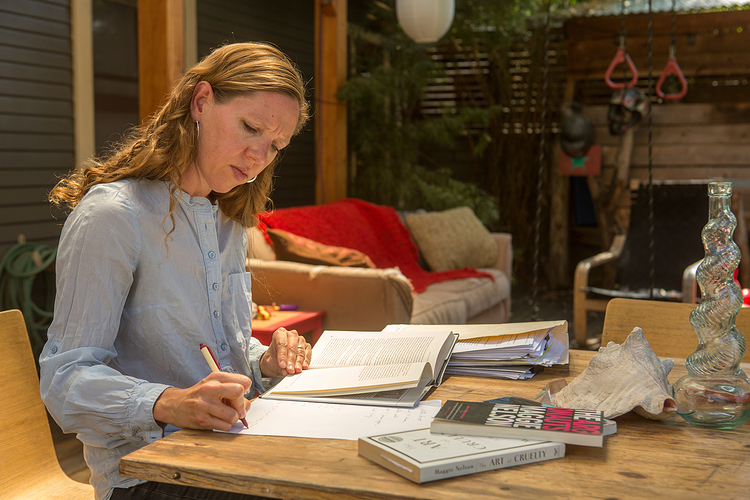Maggie Nelson’s 2015 book The Argonauts, a memoir about writing, art-making, and queer family, was a critically acclaimed best seller. It brought Nelson well-deserved mainstream attention, and since then, a number of her pre-Argonauts books have been reissued. The latest is Something Bright, Then Holes, a book of narrative poetry first published in 2007 and now reissued by Soft Skull Press.
At the Los Angeles Review of Books, Nelson chats with Clare Shearer about poetry vs. prose, her years in New York, and looking back at Something Bright more than a decade later. Here’s an excerpt:
In the first line of the collection you say, “I used to do this, the self I was / used to do this // the selves I no longer am / nor understand.” Does Something Bright feel like a kind of document of a past self? Can you reaccess the person you were writing it?
Oh yes, it’s definitely a document of a past self. But so is every book. I don’t really think much about the solidity of past selves, though — recently I heard Laurie Anderson say that when she looks in the mirror, she thinks: “Not bad. But not me.” I feel the same way about these poems, I guess.
The title Something Bright, Then Holes comes from Annie Dillard’s essay “Seeing,” which I also love and return to often. What is it about this specific phrase that stayed with you?
I’ve always loved that phrase. It’s from a girl who has been been blind her whole life, and it’s how she describes her hand when she can first see. I love the defamiliarized version of the body that she’s offering, as if she’s an emissary from one system of perception to another. It’s also a phrase very much about presence and absence, and Something Bright is about that — it’s a book full of intensity, strobing, a certain manic energy edged with grief and loss. So the phrase seemed right.
Image of Maggie Nelson via the Creative Independent.
